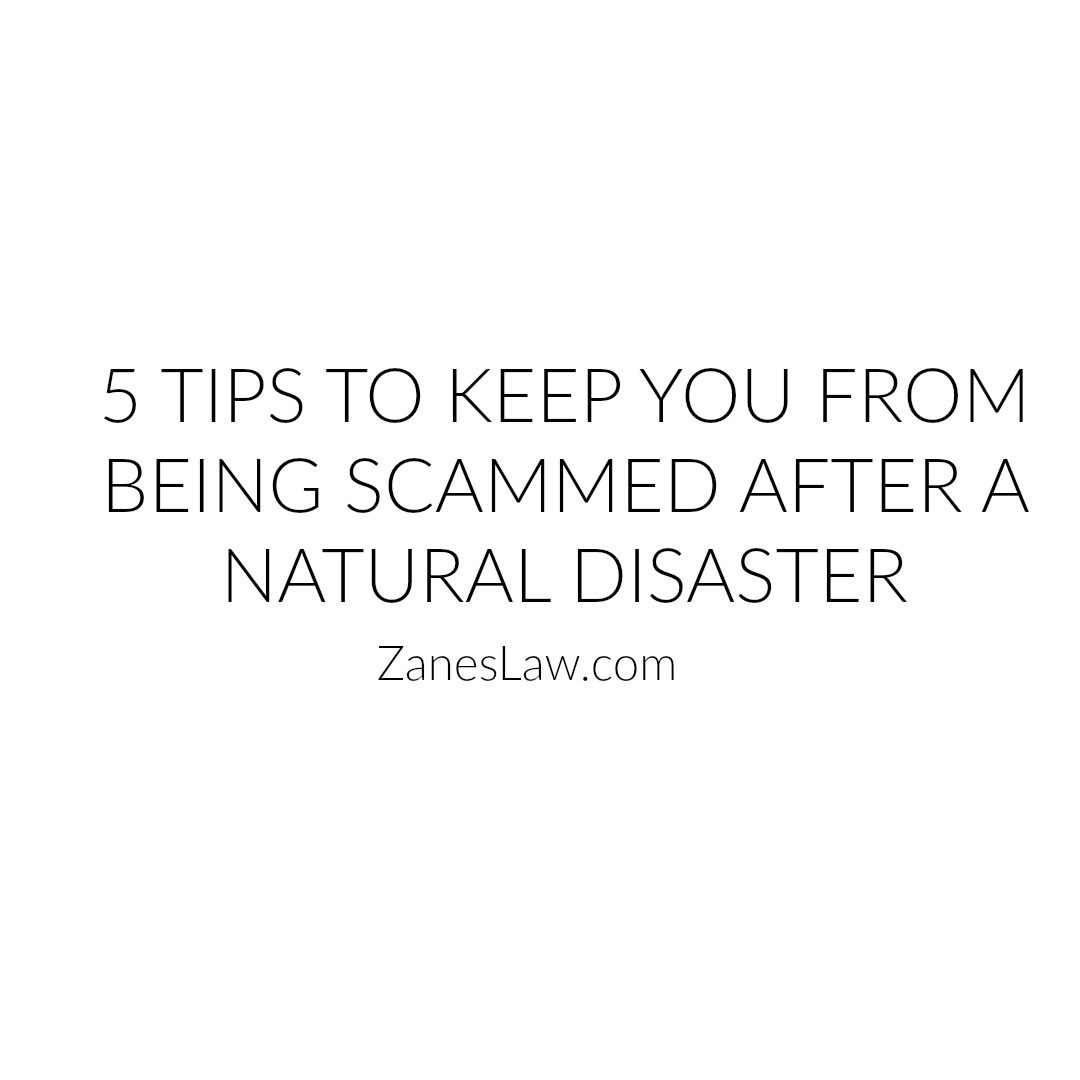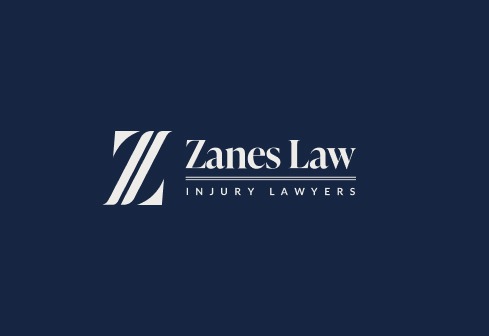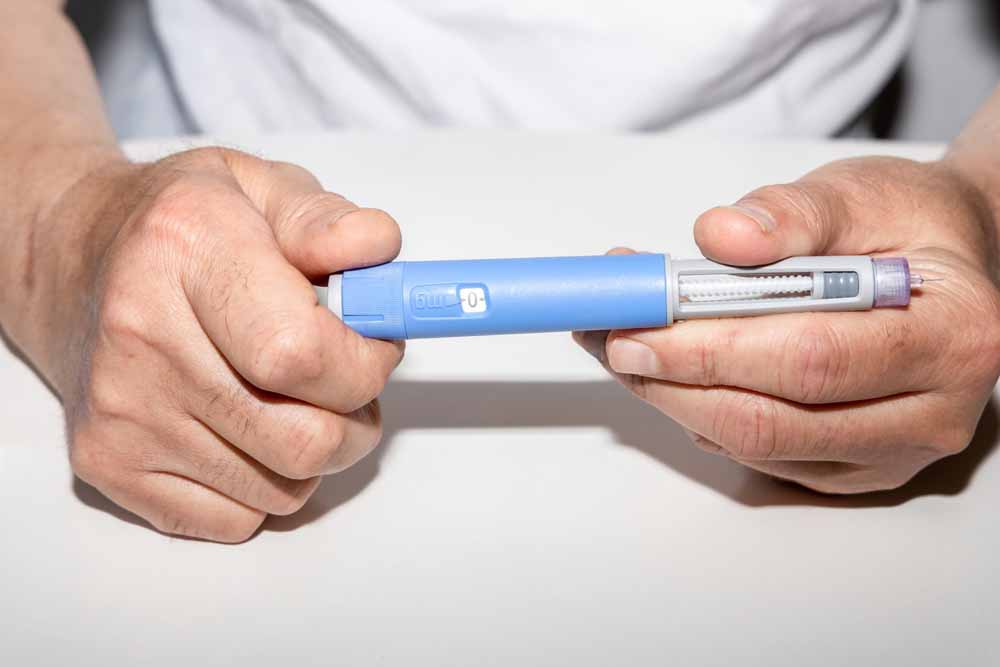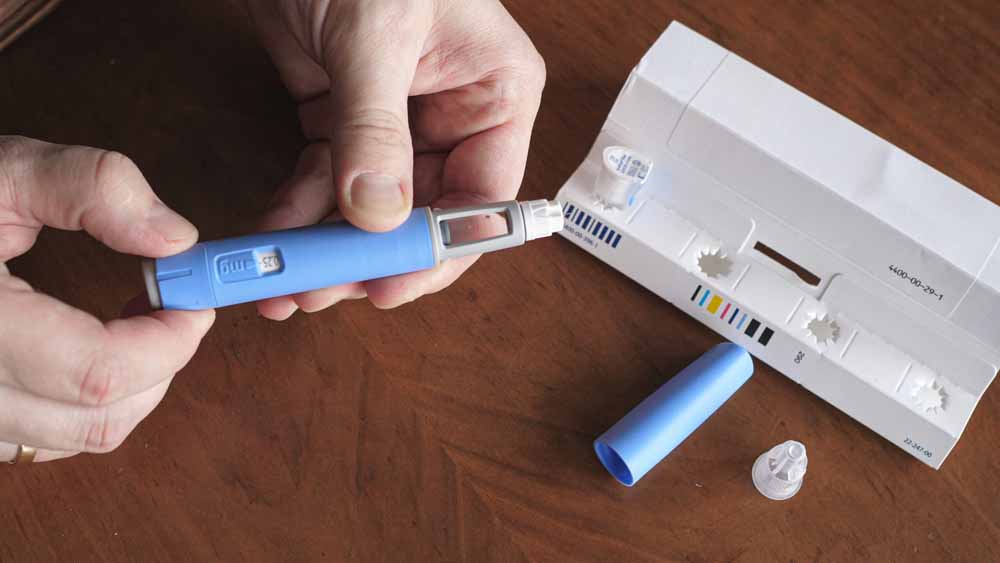Natural Disaster Scams – FIVE TIPS FROM ZANES LAW
The charitable outpouring has been amazing and inspiring in the aftermath of Hurricane Harvey, but natural disaster scams are rampant after a natural disaster. It is important that we all know how to give without getting taken advantage of. Typically, within hours of any natural disaster, natural disaster scams pretending to be charities get set up and begin looking for victims. To put this into perspective, in 2012 before Hurricane Sandy struck scammers had created donation websites so that they would be positioned to collect money immediately after the storm made landfall. The typical natural disaster scams begin in this way.
Also, in the age of social media, scammers can also be found running Facebook scams, email scams, text scams, etc. Any form of communication is fair game as far as the scammer is concerned. There are many resources that you can use to research charities, but one of my favorites is the Better Business Bureau’s Wise Giving Alliance.
Types of Natural Disaster Fraud
My research suggests that there are really five types of natural disaster scams: charitable solicitations, contractor and vendor fraud, price gouging, property insurance fraud, and forgery.
As discussed above, websites give scammers the ability to reach a global audience. People looking to help others after a natural disasters often come across fake websites that actually look to be a legitimate charity and/or purport to be the actual website for a charity that is a real, legitimate charity. Many of these bogus websites attempt to not only collect money, but also the information needed to steal your identity. Other sights are designed to infect your computer with malware in order to steal account numbers and passwords.
- TIP 1: Check Out The Charity:Before donating to a charity take the time that you need to check it out. In addition to the Wise Giving Alliance listed above, charities can be vetted at Charity Navigator and Charity Watch.
- TIP 2: Examine The Web Address:Carefully read a charities internet address before clicking on it because scammers will create websites that have slight misspellings in the charity’s real web address in order to fool you. Also make sure that the internet address ends in .org.
- TIP 3: Don’t Click on Links:If you receive a solicitation email do not click on any links within that email because the link could include a virus or malware that gives the scammer access to the data on your computer.
- Price gouging is when either a business or an individual drastically raises the price of something that is in short supply within the disaster zone because it is something that people need. Items that are more prone to price gouging are things like water, food, gas, generators, etc. As of 2008, price gouging was actually illegal in 34 states.
- Contractor or vendor fraud is when a person poses as a contractor or repairman in order to collect money for work that he promises to do, but has no intention of doing.
- TIP 4: Say No To Door-to-Door Solicitors
- Disaster fraud against insurance companies is generally perpetrated by individuals who have suffered some sort of loss in the natural disaster, but they then choose to inflate that loss. Examples of this include everything from fabricating a claim to simply inflating a legitimate claim.
- Forgery examples include reimbursement and/or insurance checks stolen from mailboxes and forged insurance and federal emergency assistance checks.
- TIP 5: Have a Secure Delivery Address: Make sure that any entity that is going to mail you a check has your current, valid address and make sure that that address includes a secure place/box for the check to be left at.
The personal injury lawyers at Zanes Law focus on helping our clients who have been injured in accidents. To learn about our services please click on this link. If you have been injured in any way, please call us and we will do our best to help you just like we helped our many clients who have left us 5-Star Google reviews




